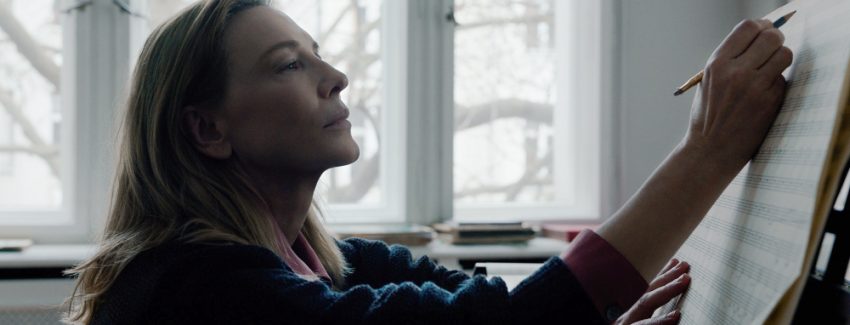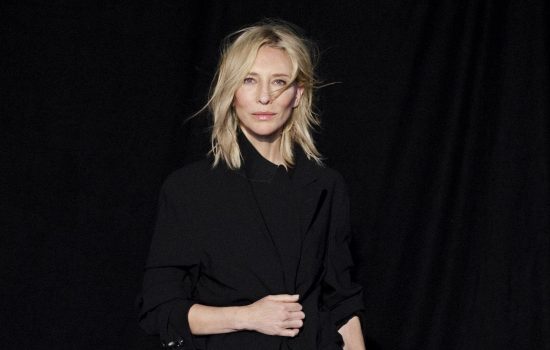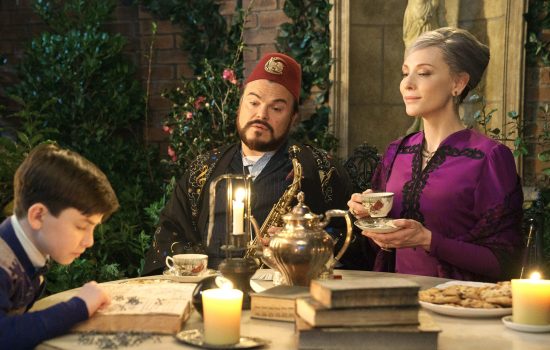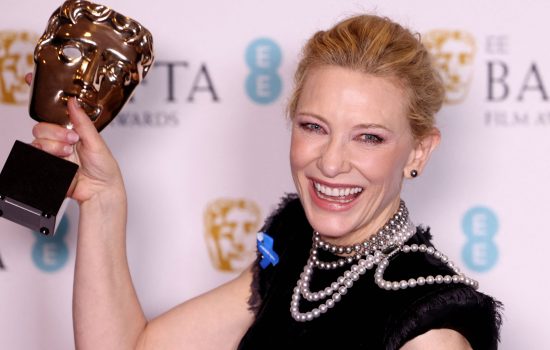Hello, Blanchett fans!
Two weeks to go before the New York premiere of TÁR — after the NYFF premiere there will be a Q&A with Cate Blanchett, Todd Field, Nina Hoss, Noémie Merlant, and Sophie Kauer.
Le Soir has published the interview they did with Cate in Venice. The film will be released in Belgium on March 1st 2023.
This is a google translated interview from French to English. Beware of spoilers.
The divine Cate Blanchett returns with a film that presents itself as a colossal challenge and which will cause a lot of ink to flow. TÁR by director Todd Field, after a sixteen-year absence from the cinema, plunges into the world of international classical music through the figure of Lydia Tár. Considered one of the greatest living composers and orchestra directors, she is the first woman to conduct a major German orchestra. The film follows her at the height of her creativity, career, and personal life, as she lives with a violinist and a girl they adopted, and follows her to her tragic decline. #MeToo accusations multiply, as do videos and emails: Lydia is suspected of having favored the cellist she fell in love with in her orchestra, of having harassed women in the past and of having persecuted a musician who ended up taking her own life.
“This film is a sprawling creature, and my feelings are changing day by day,” says Cate Blanchett, we met at the Venice Film Festival. “This morning I woke up thinking this is some kind of power meditation. Not only institutional power, but also creative power. We are in an unequal relationship, where the individual is opposed to the power of the group, of the orchestra. Conductors often refer to the orchestra as their instrument, but an orchestra is made up of many people. Often, institutional power is completely hierarchical, like a pyramid. We feel in certain institutions, in particular in the world of classical music, whose canon is masculine, directed and created by men, that power has something analogous to the divine power of kings. What happens when someone wants to challenge the system and achieve power? Does he see himself consumed and modified by this power? Can the fragile relationship one has with creative impulses be destroyed? I also think the film is about time.”
In which way?
It was important to me that the character was turning 50. We experience an incredible change at this age. You don’t have to be in the world of movies or music, or be an athlete, to realize that this is where the real challenge begins. We reach a summit and we realize that the next goal is even more difficult to reach and is related to the descent. Lydia finds herself at the end of a cycle and she wonders what will be next, on the creative front.
Is this film a #MeToo story in reverse?
No. I think the fact of seeing #MeToo there is because the question is still open, that there is still a lot of rage to appease. Of course, the film talks about cancel culture and, if you want, you can also put #MeToo in it, but I think that would amount to generalizing somewhat. These elements are present in the film, but because they are useful to the plot and are representative of the evolution of the world. They do not constitute the heart of the story, which is much more existentialist.
Many great artists are execrable men. Should we separate the judgment on art from that on the person?
I believe that the life of artists hides many stories. I am thinking of Mahler, who holds a central place in our film. I saw a documentary about Alma Mahler and I thought: this woman is a talentless human being who has consummated this man’s art. At the end, I realized that I had never heard any woman speak of her. The Alma story I knew was an all-male version. Behind the artistic, economic and sporting successes are many people who supported the winner. There are disputes, abuses and lies that have been reported about which we will never know the truth. It is important to act, to read these books which are slightly offensive, but which make us understand the way of thinking of a society. When I find myself in front of a Picasso, I imagine and I know what happened in his studio, because I have informed myself. Nevertheless, I can’t help but think, look at Guernica, that is one of the greatest works ever created. That’s a fact. The main thing is to always exercise your critical sense.
Does Cate Blanchett believe she has some power? How does she exercise it?
“Well, I’m a financially secure, well-educated white woman who’s committed to a stable relationship, working, and healthy,” the actress replies. “From that point of view, I am incredibly powerful. But when my husband and I wanted to run the Sydney Theatre Company, we knew we wanted to create something. We have integrated a set. So you have to know when and how to use your power. Sometimes our expectations of a powerful person also change. If a director answers ‘I don’t know yet’ to a question, I find that extremely powerful and creative. In general, people expect immediate answers. If it is a man who gives such an answer, it is considered that he is open to others. But if it’s a woman, you hear people say ‘There, she’s got a hole’ or ‘It’s going to be a long shoot today…’”
Source: Le Soir
 Welcome to Cate Blanchett Fan, your prime resource for all things Cate Blanchett. Here you'll find all the latest news, pictures and information. You may know the Academy Award Winner from movies such as Elizabeth, Blue Jasmine, Carol, The Aviator, Lord of The Rings, Thor: Ragnarok, among many others. We hope you enjoy your stay and have fun!
Welcome to Cate Blanchett Fan, your prime resource for all things Cate Blanchett. Here you'll find all the latest news, pictures and information. You may know the Academy Award Winner from movies such as Elizabeth, Blue Jasmine, Carol, The Aviator, Lord of The Rings, Thor: Ragnarok, among many others. We hope you enjoy your stay and have fun! 




 A Manual for Cleaning Women (202?)
A Manual for Cleaning Women (202?) The Seagull (2025)
The Seagull (2025) Bozo Over Roses (2025)
Bozo Over Roses (2025) Black Bag (2025)
Black Bag (2025)  Father Mother Brother Sister (2025)
Father Mother Brother Sister (2025)  Disclaimer (2024)
Disclaimer (2024)  Rumours (2024)
Rumours (2024)  Borderlands (2024)
Borderlands (2024)  The New Boy (2023)
The New Boy (2023) 











